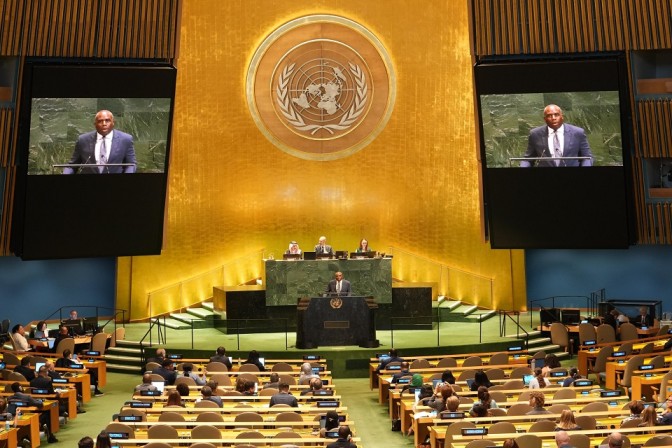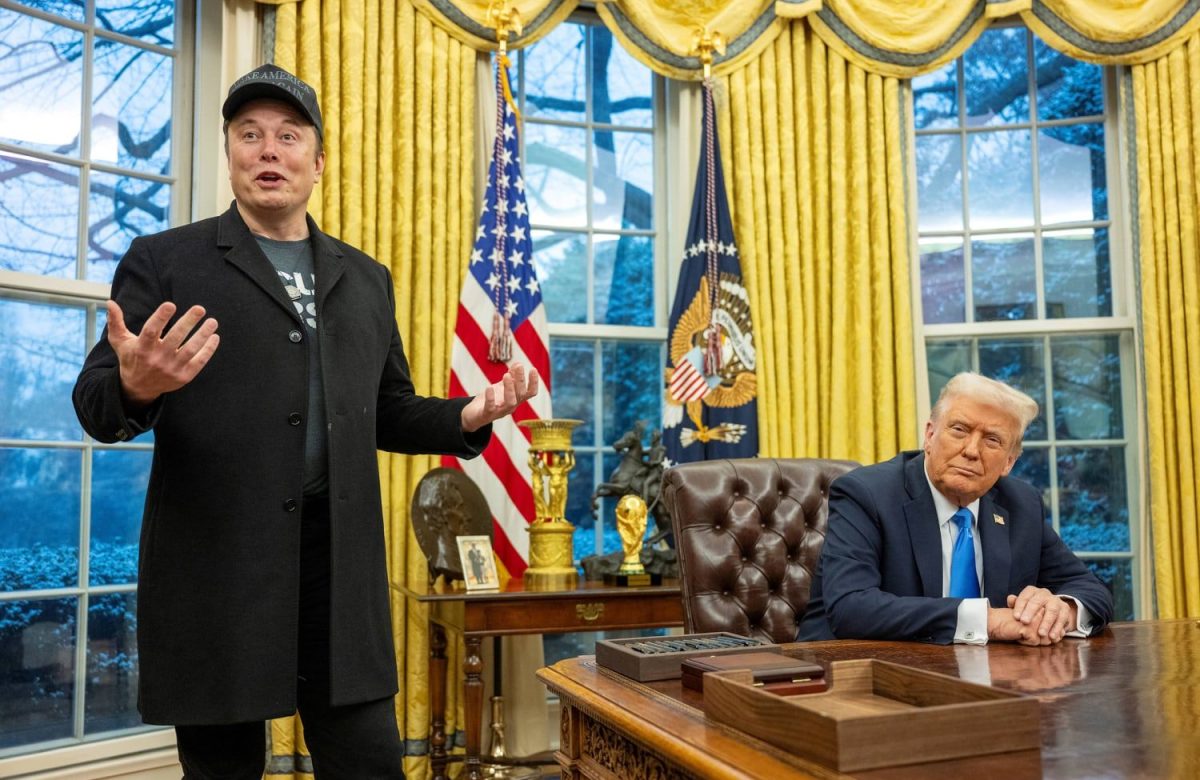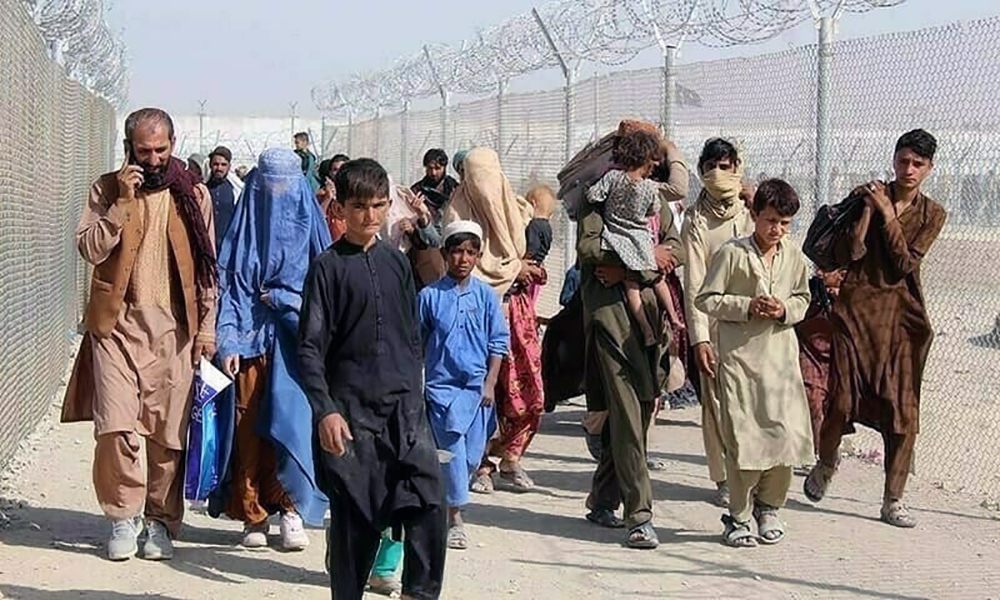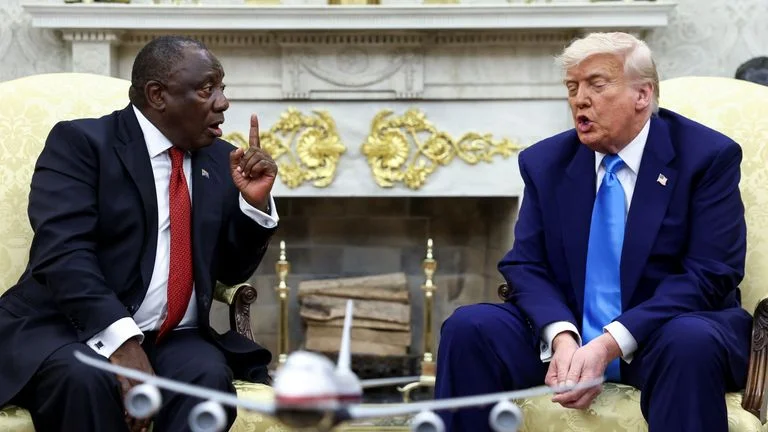
Trump Clashes with Ramaphosa, Accuses South African President of Anti-White Violence During Oval Office Showdown
- World News
- May 21, 2025
- No Comment
Trump Clashes with Ramaphosa, Accuses South African President of Anti-White Violence During Oval Office Showdown
Report by Safarti Tarjuman International Desk
A tense meeting between U.S. President Donald Trump and South African President Cyril Ramaphosa at the White House erupted in controversy after Trump pushed unverified claims of anti-white violence in South Africa, prompting a firm diplomatic rebuttal from Pretoria.
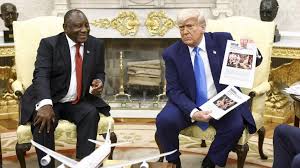
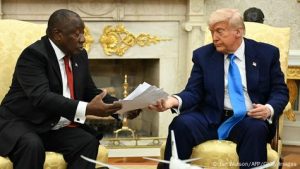
The Oval Office session, intended to restore ties between the two nations, quickly derailed when Trump presented a video claiming widespread attacks on white farmers, a theory widely discredited by global experts and the South African government.
Trump Airs Controversial Footage
Without warning, Trump dimmed the room lights and instructed aides to play a video. The footage displayed South African political leaders singing liberation-era songs alongside images of white graves, which Trump described as evidence of a “white genocide.”
“They’re being murdered, and the world stays silent,” Trump declared. “This is real. It’s happening.”
President Ramaphosa, seated beside Trump, responded with composure and resolve. He emphasized that the video was misleading and misrepresented the realities in South Africa.
“We cannot allow misinformation to define our dialogue,” Ramaphosa said. “Violence in our country affects people of all races, and the majority of victims are Black South Africans.”
Ramaphosa Rejects Racial Narrative
Ramaphosa clarified that South Africa’s national crime problem is not racially targeted and that land reform and empowerment programs are legal, constitutional, and non-violent.
“There is no policy of persecution,” he added. “We are guided by our constitution and the vision of Nelson Mandela.”
Despite Ramaphosa’s explanation, Trump continued pressing the issue, referencing headlines and anecdotal reports as alleged proof of targeted attacks on white citizens.
“You’re taking land from white farmers, then letting them be killed,” Trump claimed. “That’s state-sponsored execution.”
Ramaphosa firmly rejected the accusation, stating that land reform addresses historical inequality and does not involve forced seizures or violence.
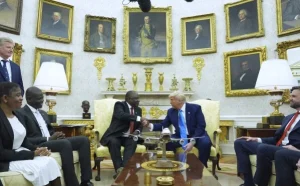
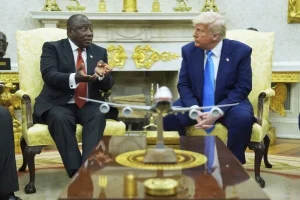
South African Delegation Responds with Solutions
Ramaphosa was joined by a prominent delegation including Agriculture Minister John Steenhuisen, business magnate Johann Rupert, and golfing legends Ernie Els and Retief Goosen.
Rupert acknowledged South Africa’s high crime rates but stressed that crime impacts all communities. He called for U.S. cooperation in deploying technology to support rural safety.
“This is not a race issue — it’s a national security issue,” Rupert said. “We need tools like Starlink and surveillance drones in remote police stations.”
South Africa is preparing to grant Elon Musk a license to operate Starlink satellite internet for security infrastructure, especially in underserved rural areas.
U.S.–South Africa Relations Under Strain
The meeting took place amid worsening relations between Washington and Pretoria. The U.S. has:
- Imposed a 31% tariff on South African exports,
- Expelled South Africa’s ambassador,
- Reduced bilateral aid,
- Criticized South Africa’s genocide case against Israel at the International Court of Justice.
Ramaphosa’s recent approval of a land reform law has drawn U.S. criticism, particularly from Trump, who falsely claimed it authorizes state violence against white landowners.
Immigration Controversy Adds Fuel
Adding to the controversy, Trump’s administration recently accepted around 50 white South Africans into the U.S. under a special refugee offer. Critics say this reflects a racially selective immigration policy, especially given tighter restrictions for applicants from other regions.
Ramaphosa Calls for Constructive Dialogue
Despite the confrontation, Ramaphosa ended the meeting on a diplomatic note, urging cooperation rather than conflict.
“We must face challenges with facts, not fear,” he said. “Our goal is unity, development, and justice — not division.”
The South African delegation expressed hope that future collaboration in technology, agriculture, and trade can overcome current tensions and restore a productive bilateral relationship.


